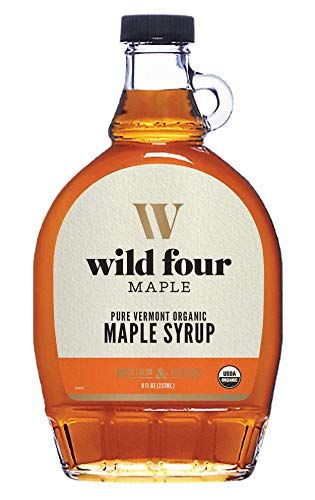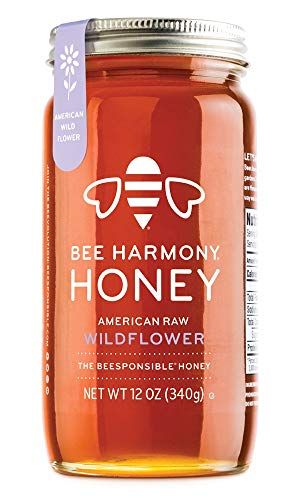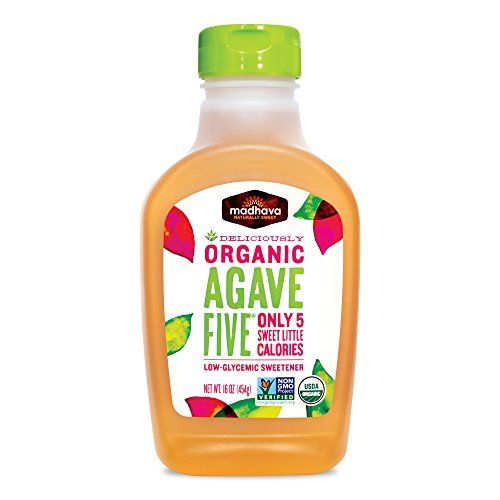Your Comprehensive Guide To Sugar Substitutes, According To Nutritionists
If you’re looking to lose weight or just generally be healthier in your day-to-day life, eating sugar isn’t exactly the best option. “Sugar is inflammatory to the body,” explains Amy Shapiro, MS, RD, CDN, founder of Real Nutrition. And of course, chronic inflammation is not something you want hanging around in your system: It can be associated with heart disease, autoimmune conditions, skin issues, and energy imbalance.
And it’s hard to kick a sugar habit. “Prior research also shows that sugar is an addictive substance, so the more you eat, the more you crave,” Shapiro points out. “Because of its strong effect on blood sugar, it provides us with quick bursts of energy, but leaves us with highs and lows, causing a vicious cycle and leading to a crash.”
If you just can’t shake your sweet tooth, you might want to look into sugar substitutes—a.k.a., they’re sweet, but they’re not exactly sugar. “Added sugar substitutes can be recommended to people looking to prevent certain health conditions, balance blood sugar levels, or really anyone looking to reduce added sugars in their eating routine,” says Valerie Agyeman, RD, LD, and founder of Flourish Heights.
What’s the difference between natural and artificial sweeteners?
Sugar alternatives can be natural or artificial. Basically, artificial sweeteners are synthetic sugar substitutes, which may be derived from naturally occurring substances, such as herbs or sugar itself. Natural sweeteners, on the other hand, are generally substitutes already found in nature, but in some cases, they could have gone through processing, which makes them…well, not that great for you.
“For natural substitutes, the most important things to consider are glycemic index and fructose content,” explains Lauren Slayton, MS, RD, and founder of NYC-based nutrition service Foodtrainers. Glycemic index is a measure of how your body reacts to a type of food—and how much it raises your blood sugar. Spikes in blood sugar are related to diabetes and insulin resistance and therefore can cause long-term problems.
In addition, foods with high fructose levels can increase hunger hormones, and then are readily stored as fat. And just as natural sweeteners aren’t the holy grail of nutrition, artificial sweeteners are also not as bad as you think they might be. “If you’re looking to balance blood sugar levels, an artificial sweetener might be the better option of the two,” adds Agyeman. “But they all tend to have different flavor profiles.”
Below, check out a list of sweeteners (both natural and artificial), to help determine the best sugar substitute for your favorite sweet treats.
1. Stevia
One of Slayton’s favorite sugar alternatives, stevia is derived from the plant of the same name. It essentially has a glycemic index of zero, and also contains no fructose. “Stevia is far sweeter than sugar, so you use very little,” says Slayton. “I suggest the liquid formulations (Nunaturals is a favorite brand) if you find the taste odd.” Stevia may be used in place of table sugar in your favorite foods and beverages, like coffees and smoothies.
2. Maple syrup
“Maple syrup is a natural sweetener derived from [the sap of] maple trees,” says Agyeman. “It comes in different grades with different processing levels, and it contains some vitamins, minerals, and antioxidants,” she adds. One study previously published in the Journal of medicinal food found that Grade B maple syrup, made from a darker sap, was higher in antioxidants, but many people prefer Grade A syrup for the light, classic maple flavor.

Agyeman recommends using maple syrup in recipes when baking or as a topping for breakfast foods. Just remember to read the label at the market to ensure that you’re purchasing pure maple syrup (Hint: It’ll make your grocery bill a bit higher) and not a syrup that has tons of artificially added sugars.
3. Coconut sugar
Coconut sugar is often used as a substitute in baking. “Made from the coconut palm tree, coconut sugar is a plant-based sweetener that is healthier than sugar as it contains some minerals like iron and zinc, as well as inulin—a fiber that will slow digestion and prevent blood sugar spikes,” says Shapiro. “It also has a lower glycemic index than regular sugar.” Adding it to muffins right this minute.
4. Xylitol
“Xylitol is a sugar alcohol,” says Shapiro. “It’s a naturally occurring alcohol and not digested by the body, therefore it does not count towards calories.” However, it can cause GI distress, gas, and bloating, as the bacteria in the gut tries to digest it, and releases carbon dioxide in the process. You can cook with it, and it’s often found in sugar-free candy, mints, and chewing gum.
5. Erythritol
Like xylitol, erythritol is a sugar alcohol, but it contains even fewer calories and is often used as a sugar substitute in the keto diet. “It also tastes almost exactly like sugar, making it an easy switch,” says Shapiro. “Your body does not have the enzymes to break down the majority of erythritol, so most of it is absorbed directly into your bloodstream and excreted,” she adds. However, despite its low-calorie count, a recent study that had college students as subjects linked erythritol blood levels to increased fat mass and weight gain.
6. Sucralose
Sucralose is the sweetener found in Splenda. “It’s about 600 times sweeter than sugar,” says Agyeman. “It’s a general-purpose sweetener used for baking or sweetening beverages such as coffee or tea,” she says. You can find sucralose in thousands of processed foods and drinks, including soft drinks, juices, sauces, syrups, candy, desserts, baked goods, and canned fruits. Sucralose can be used in baking because it doesn’t lose its sweet taste at high temperatures.
7. Aspartame
Aspartame is a common low-calorie sugar substitute. It’s a combination of two amino acids: aspartic acid and phenylalanine. It’s about 200 times sweeter than sugar and can be found in thousands of processed foods and drinks, such as yogurt, frozen desserts, pudding, dry dessert mixes, chewing gum, and soft drinks. “It’s often used as a tabletop sweetener,” adds Agyeman. “It’s pretty safe for most people in moderation,” she says.
8. Monk fruit sweetener
Another favorite of Slayton’s, monk fruit is a fruit grown in Asia. It contains both glucose and fructose in its whole form, but the juice used to create the sweetener does not. (Essentially, the final sweetener contains no glucose or fructose.) It instead gets its sweetness from unique antioxidants called mogrosides, which also may restrict the growth of certain types of cancer cells, according to a study published in the journal Oncogenesis.
“I wouldn’t use your sweetener to meet your mineral needs or approach your health issues, but I do think it’s something that’s promoting our health versus damaging it,” Slayton says. Although monk fruit has yet to hit widespread prominence in the U.S., Slayton insists you can find it in the sweetener aisle at many large-chain grocery stores—just make sure you’re getting the unadulterated version.
9. Honey
“Honey is a natural sweetener with many uses,” says Agyeman. “It contains trace amounts of vitamins, minerals, and antioxidants, but is high in calories and can sometimes be heavily processed,” she says. Of course, you can use it to sweeten tea or coffee, or as a sweetener to top foods like pancakes, waffles, toast, and yogurt, or as an ingredient in marinades or dressings.

10. Agave
Agave is a syrup found in the agave plant (a.k.a. the same plant used to make tequila).Although it’s touted as natural, it’s actually pretty processed, since the fluid from the plant needs to be filtered and then broken down into glucose. The resulting syrup is packaged and then sold.

You can pour agave syrup on pancakes or use it in baked goods or cocktails, or even in tea and coffee. However, it’s definitely super sweet and has a ton of sugar in it. “It’s the fructose content of sugars we should really be concerned with. Think high fructose corn syrup,” says Slayton. “Agave nectar is 84 percent fructose, and for this reason, I don’t always recommend it. It will only make you hungrier.”
Soo, are there any sugar substitutes you should stay away from?
“Like sugar, artificial sweeteners provide a sweet taste, but what sets them apart is the fact that after consumption, they do not increase blood sugar levels,” says Shapiro. Because of that, Shapiro notes, they may stimulate your appetite and could cause weight gain as a result.
The sugar alcohols found in certain artificial sweeteners may also affect digestion since your body can’t break them down. The main problem is that they can cause digestive problems, especially when consumed in large amounts. Since your body can’t digest most of them, they travel to the large intestine where they are metabolized by your gut bacteria, and this can cause bloating, gas, or diarrhea.
In terms of natural sugar substitutes, they can raise your blood sugar depending on their fructose content and glycemic index. “‘Sweet begets sweet.’ The more sweet you eat, the more you crave,” says Slayton. Depending on the substitute you use, it could raise your blood sugar and cause a nasty crash, or could cause you to crave more sugar.
So, it’s recommended to try and limit sugar substitutes as much as you can. Slayton also offers up this trick: “I’m a big fan of using cinnamon for a number of reasons: reducing appetite, stabilizing blood sugar,” she says. Adding a combo of cinnamon and vanilla to something sweet kind of tricks you into thinking you’re eating something more sugary than you actually are.
Source: Read Full Article


